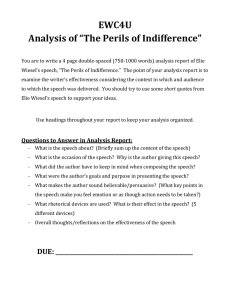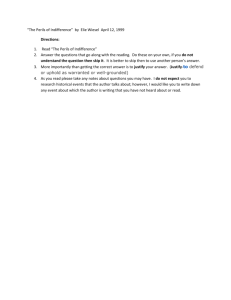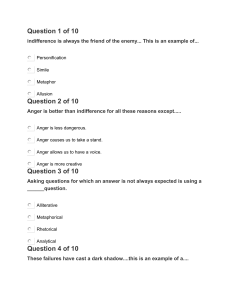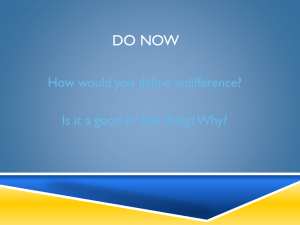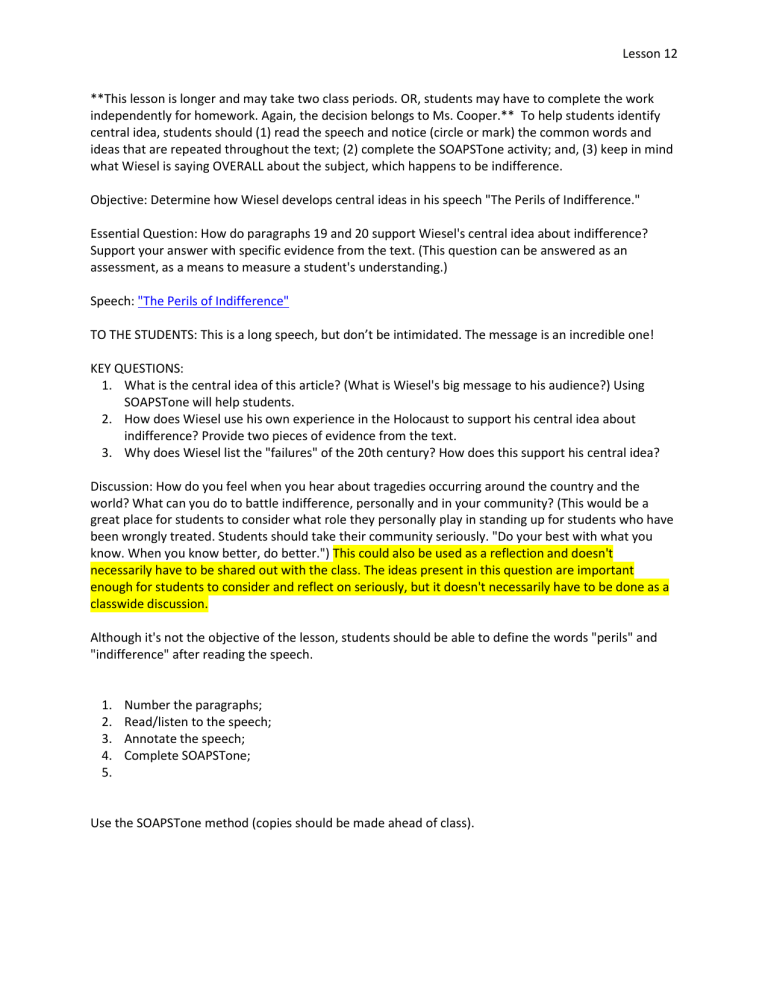
Lesson 12 **This lesson is longer and may take two class periods. OR, students may have to complete the work independently for homework. Again, the decision belongs to Ms. Cooper.** To help students identify central idea, students should (1) read the speech and notice (circle or mark) the common words and ideas that are repeated throughout the text; (2) complete the SOAPSTone activity; and, (3) keep in mind what Wiesel is saying OVERALL about the subject, which happens to be indifference. Objective: Determine how Wiesel develops central ideas in his speech "The Perils of Indifference." Essential Question: How do paragraphs 19 and 20 support Wiesel's central idea about indifference? Support your answer with specific evidence from the text. (This question can be answered as an assessment, as a means to measure a student's understanding.) Speech: "The Perils of Indifference" TO THE STUDENTS: This is a long speech, but don’t be intimidated. The message is an incredible one! KEY QUESTIONS: 1. What is the central idea of this article? (What is Wiesel's big message to his audience?) Using SOAPSTone will help students. 2. How does Wiesel use his own experience in the Holocaust to support his central idea about indifference? Provide two pieces of evidence from the text. 3. Why does Wiesel list the "failures" of the 20th century? How does this support his central idea? Discussion: How do you feel when you hear about tragedies occurring around the country and the world? What can you do to battle indifference, personally and in your community? (This would be a great place for students to consider what role they personally play in standing up for students who have been wrongly treated. Students should take their community seriously. "Do your best with what you know. When you know better, do better.") This could also be used as a reflection and doesn't necessarily have to be shared out with the class. The ideas present in this question are important enough for students to consider and reflect on seriously, but it doesn't necessarily have to be done as a classwide discussion. Although it's not the objective of the lesson, students should be able to define the words "perils" and "indifference" after reading the speech. 1. 2. 3. 4. 5. Number the paragraphs; Read/listen to the speech; Annotate the speech; Complete SOAPSTone; Use the SOAPSTone method (copies should be made ahead of class).
